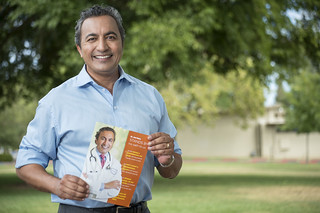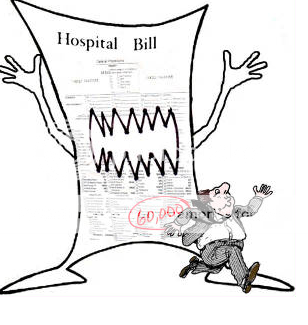On November 6th, California voters will have a historic opportunity to reclaim our right to know what’s in the food we eat from powerful special interests known for endangering our health, our environment and deceiving the public.
Proposition 37 – The California Right to Know Genetically Engineered Food Act – would simply require clear labeling of genetically modified foods (GMOs). These are foods that have been artificially altered by genes from other plants, animals, viruses, or bacteria – and are not found anywhere in nature.
Fifty countries around the world – representing more than 40% of the planet’s population – already require GMO labeling, including all of Europe, Japan, India and China.
Yet in the United States, the US Food and Drug Administration (FDA) requires no safety testing of GMO’s, no long-term health studies have been conducted (UPDATE: First Ever Long Term, Peer Reviewed Study Finds Massive Tumors in Rats Fed Monsanto’s Genetically Engineered Corn), and no labeling is required to alert unsuspecting consumers to the presence of these ingredients.
The GMO Threat to Our Health and Environment
A growing body of peer-reviewed studies has linked GMO’s to allergies, organ toxicity, and other health problems. These studies must be followed up. The United Nations/World Health Organization food standards group and the American Medical Association have each called for mandatory safety testing of genetically engineered foods—foods many of us are eating, even though we don’t know it, every day.
Most recently, we’ve learned that Walmart will be selling a new sweet corn from Monsanto Company that has been genetically engineered with a Bt toxin INSIDE it. This toxin is known for disintegrating the stomach walls of insects, and causing kidney and liver damage in rats.
What’s it going to do to our bodies? We don’t know. And because GMO foods aren’t labeled, Walmart’s customers don’t get to choose whether they want to be a part of the experiment.
Various environmental problems have also been linked to genetic engineering–including biodiversity loss, an overall increase in pesticide use, the emergence of super weeds that are threatening millions of acres of farmland, and the unintentional contamination of non-GMO and organic crops. And contrary to industry claims, GMO’s don’t increase farmer’s yields.
Ultimately, the free market is supposed to provide consumers with accurate information about products so we can make informed choices. Yet in the case of genetically altered food, and the risks it may pose to our health and environment, we are all being left in the dark.
Proposition 37 and Our Right to Know
Americans have made it abundantly clear that we support the fundamental, democratic right to know what’s in the food we eat and feed our children – particularly when it’s been genetically engineered in a laboratory, and especially given the growing health and environmental concerns linked to these products.
That’s why in just 10 weeks, nearly a million signatures were gathered by a volunteer army of concerned California citizens this spring, easily qualifying Prop 37 for the November ballot. Also this spring, the FDA received more than a million comments demanding that genetically engineered foods be labeled (more than any petition in the agency’s history) andpolling showed that approximately 90% of Americans (and Californians) agreed.
GMO labeling is not a new issue. To date, 19 US states have attempted to enact mandatory labeling laws through legislation—only to be blocked by the same entrenched special interests currently fighting Prop 37. That’s why we’re taking the question directly to consumers in the largest state in the union-and doing so knowing that victory here will be a victory for common sense food transparency everywhere.
For decades, we didn’t label foods with calorie or nutritional value information, but we do now, and many consumers use this information every day. Did prices go up when calories were added to a label? Of course they didn’t – and independent research shows they won’t if one more line of ink is added now either. Research also shows that Prop 37 has been carefully crafted in a way that provides far greater legal certainty for businesses than other consumer disclosure laws.
The No on 37 Campaign’s Growing Credibility Problem
There is no clearer David versus Goliath fight-anywhere in America–on this year’s ballot. On one side, is a truly grassroots people’s movement with overwhelming bipartisan support for the right to know what’s in the food we eat. On the other side, stands a who’s who of the world’s largest pesticide, agribusiness and junk food companies – a $32 million war chest (almost all of which has come from special interests outside California) and a well-documented history of false product safety claims, discredited arguments, and outright doublespeak.
Consider the “No” campaign’s two largest donors – Monsanto ($7.1 million) and DuPont ($4.9 million) – the same companies that told us Agent Orange and DDT were safe. And while spending wildly to fight our right to know what’s in our food in America, Monsanto also produced a series of adssupporting labeling of GMOs in Europe. In other words, Monsanto thinks Europeans have the right to know, but Americans don’t.
Who Do You Trust: Big Pesticide or a Broad Based Public Interest Coalition?
The question before voters could not be starker: Whose side are you on? — the discredited special interests like Monsanto and Dupont, or everyday California families; the more than a million individuals who stood up to get Prop 37 on the ballot; the tens of thousands more who have joined us on Facebook; and the more than 2,000 consumer, environmental, farming, faith-based, political and labor organizations that have endorsed Yes on 37.
Opponents of Prop 37 have built a business model that relies on secrecy, inhibits consumer choice, and prevents small farmers, the organics industry, and truly natural food producers from competing on an equal playing field.
The time is now for all of us to reclaim our basic democratic right to know what’s really for breakfast, lunch, and dinner. Prop 37 does one and only one thing-it gives California consumers the power to decide for ourselves what is best for our families.
Learn More or join us at www.carighttoknow.org
Help fuel our grassroots campaign by Contributing here, or by following us on Facebook and Twitter.






